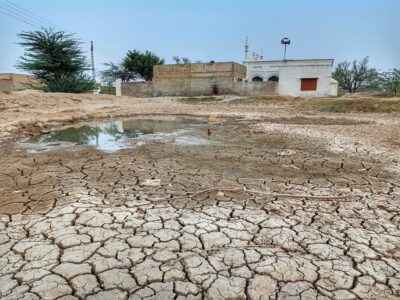
When many people envision food security in Vietnam, they think of rice. More than seven million tons of it are harvested each year, making Vietnam the third largest exporter of the crop. What isn’t exported feeds the Vietnamese population; rice provides 65 percent of people’s daily calories on average, making it a vital piece of both food and financial security.
However, many of those working in agriculture in Vietnam believe rice may not be the future of food security for the country going forward. Cash crops such as coffee, cashews and fruit may provide more stability and better value, allowing small-scale farmers to start to pull themselves out of poverty and to access higher nutrition foods. Regardless of the crop, the uncertainties of a variable climate pose a challenge to farmers’ success.
These are the kinds of ideas that teams from Columbia University’s International Research Institute for Climate and Society (IRI) and the Center for International Tropical Agriculture (CIAT) heard at a policy workshop in March in Vietnam, as part of Adapting Agriculture to Climate Today, for Tomorrow (ACToday), the first Columbia World Project. The workshop, supported by ACToday and by a CIAT-implemented project known as DeRISK, convened representatives from government agencies and farmers’ groups to discuss what climate information is currently being generated and used for agriculture and where the process can be improved for more effective decision making.
Meet ACToday Country Lead for Vietnam, John Furlow from IRI on Vimeo.
The IRI and CIAT organizers asked officials from the National Center for Hydrological and Meteorological Forecasting, the Vietnam Institute of Meteorology, Hydrology and Climate Change, and the Ministry of Agriculture and the National Institute of Nutrition to work together on their approaches to food security and nutrition. Each of the agencies presented their mission and objectives and explained their role in helping Vietnam achieve UN Sustainable Development Goal 2: ending hunger and malnutrition, achieving food security, and promoting sustainable agriculture.
Experience the full story here.
Columbia World Projects‘ first project, Adapting Agriculture to Climate Today, for Tomorrow (ACToday), aims to combat hunger and improve food security by increasing climate knowledge in six countries that are particularly dependent on agriculture and vulnerable to the effects of climate change and fluctuations —Ethiopia, Senegal, Bangladesh, Vietnam, Colombia, and Guatemala. The project is led by the International Research Institute for Climate and Society.




Although there is rice surplus for export, local food shortages still exist during certain times of the year and in certain areas, and the food basket mostly lacks balance in the poor areas including micronutrients, green vegetables and protein sources with persistent problems of malnutrition. Another factor of malnutrition is the strong mono culture market-driven in some areas and less food diversification at the local level.
I lived in Southeast Asia for 8 years and to see the gap between rich and poor I something I’ll never forget. To know that there could be other work options than selling rice (the farmers work non-stop for hours and are later plagued with back problems) is great news. I also recently read that beside coffee and cashews, seaweed, which one of the world’s most sustainable foods, is becoming very popular. Let’s hope these changes are implemented in the near future! Great article!